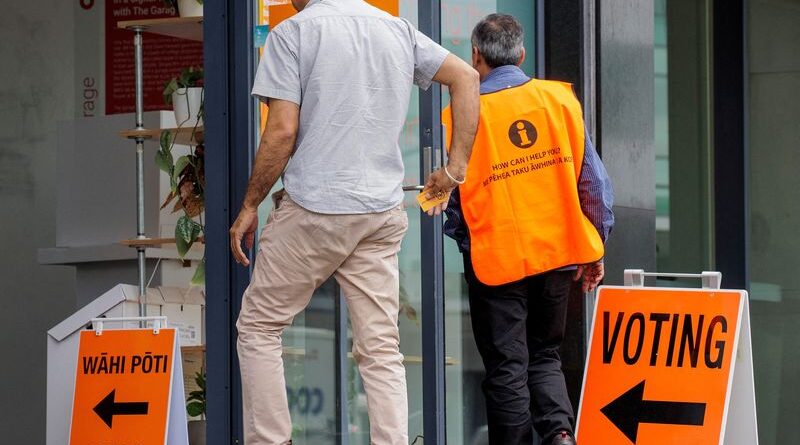New Zealand introduces law that makes it harder to vote
By Lucy Craymer and Alasdair Pal
WELLINGTON (Reuters) -The New Zealand government on Tuesday introduced a law that will prevent people from enrolling to vote on election day and bar prisoners from casting their ballot while in jail, in a move critics say could reduce voter participation.
The proposed law, which passed its first of three readings in parliament on Tuesday, will allow people to enrol to vote only up to 13 days before an election. Currently potential voters can enrol up to and on election day.
The law will also ban all prisoners from voting and require voting to open 12 days ahead of the official election day.
“This bill overhauls a number of outdated and unsustainable electoral laws. The package of amendments will strengthen the system, helping to deliver timely election results, manage the costs, clarify rules and provide more efficient services to voters,” said Minister of Justice Paul Goldsmith, who proposed the bill.
However, a report by Attorney General Judith Collins concluded that the bill “appears to be inconsistent” with the country’s Bill of Rights, including the right to freedom of expression and the right to vote.
The changes are, in part, prompted by delays in results at the 2023 election, when it took nearly three weeks before an official result was released due to the high number of special votes.
Special votes are cast by New Zealanders living or travelling overseas, voting outside their constituency or newly enrolled.
The Attorney General’s report, which was released publicly on Friday, said in the last election special votes included over 97,000 people who registered for the first time during the voting period, and nearly 134,000 people who changed electoral districts during the voting period.
“This gives some indication of the number of people who may be affected,” said Collins, who is a member of the ruling party.
Duncan Webb, a lawmaker from the opposition Labour Party opposing the bill, on Tuesday called it “a dark day for democracy”.
“Politicians should be making it easier for people to vote, not harder. It’s how we make sure that everybody’s voice is heard, that everyone gets a say,” he said.
(Reporting by Lucy Craymer; Editing by Lincoln Feast)
